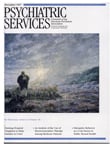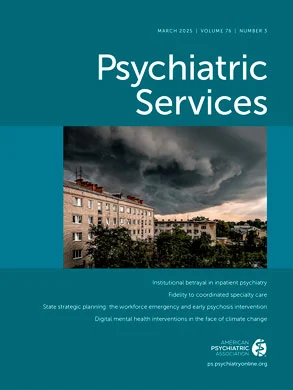Variability of prevalence rates
The problems of diagnosis are reflected in the wide variation in prevalence rates of depression among patients with dementia reported in the world literature. Reported rates of depressive symptoms for these patients range from 0 to 86 percent, although the mean rate for actual depressive disorders has been calculated as 19 percent (
1). Lower rates have been reported in community samples compared with clinical samples (
2).
One reason for the variation lies in the interpretation of symptom patterns, partly due to the considerable overlap in the symptoms and behaviors of depression and dementia. Apathy, sleep and appetite changes, poor concentration, psychomotor changes, loss of interests, social withdrawal, self-neglect, irritability, and anxiety can occur in both conditions. To examine the impact that this overlap might have on scores obtained on the 21-item Hamilton Rating Scale for Depression (
3), three psychiatrists from our department who are experienced in treating depression in dementia estimated that only three items could be attributed to depression only—depressed mood, guilt, and suicidal ideation.
Disagreement also exists between self-report ratings of depression and observer-rated depression—for example, in cases where persons with cognitive impairment underreport symptoms and caregivers misattribute dementia symptoms to depression (
4,
5). To complicate matters, there is no certainty that the depression syndrome seen among elderly persons with dementia is the same as the depression experienced by elderly persons who are not demented.
Behavioral disturbances that may be due to depression among elderly persons with dementia include vocally disruptive behavior, aggression, refusal to eat, agitation, and uncooperativeness (
6,
7). Yet these behaviors may themselves be due to numerous other problems.
Improving diagnostic accuracy
Several reasons to improve diagnostic accuracy in cases of depression in dementia can be given. Research suggests that depression causes excess disability among patients with dementia and that this additional disability can be reversed with successful treatment of the depression (
8). Further, depression causes subjective distress in many people with dementia. Finally, caregivers are more likely to be psychologically distressed and have difficulties coping when caring for a person who is depressed or behaviorally disturbed (
9). Premature institutionalization may result.
To improve diagnostic accuracy, the clinician first needs to be sensitive to the possibility that depression may develop at any stage of the course of dementia. The risk of depression is increased among patients with vascular and Lewy-body dementias and among those with a history or family history of depression (
1). Life events involving loss may precipitate depression among elderly persons with dementia, as they may among those without dementia.
Education of family and professional caregivers about changes in mood and behavior that are associated with depression may assist in identification. In particular, a relatively sudden decline in function over a few weeks requires explanation. Of course, other conditions besides depression, most notably delirium, may be responsible for such changes.
As yet there is no proven gold standard for diagnosing depression in dementia, although several tools are useful. The judicious consideration of all sources of information is required to assist in diagnosis. Both the Neuropsychiatric Inventory (
10), which contains a depression subscale, and the Cornell Scale for Depression in Dementia (
11) use the best available information from interviews with the patient and the reports of caregivers. The use of self-report scales, such as the Geriatric Depression Scale (
12), and patient interviews without other collateral information is problematic when the patient has moderate to severe cognitive impairment. Misdiagnosis can occur in both directions—transient states of dysphoria can be labeled as a depressive syndrome due to an inaccurate longitudinal report, and persistent depressive syndromes may be minimized by patients' poor recall of their effects on themselves.
What are the most reliable clinical indicators of depression among patients with dementia? The answer may depend on the severity of the dementia. Among patients with mild cognitive impairment, depression probably differs little from that seen among elderly patients without dementia. Among some patients, depression may occur in the context of psychological adjustment to the diagnosis of dementia, although insight has not been found to be a reliable marker for depression. Thoughts of death and suicidal ideation are usually part of a depressive syndrome warranting treatment (
13).
Among patients with moderate to severe dementia, symptoms that have a predominantly affective quality—guilt, hopelessness, helplessness, worthlessness, sadness, unhappiness, and mood-congruent delusions—should be given greater weighting in the assessment. However, at the level of moderate to severe dementia, behavioral disturbances, including agitation, vocal disruption, and refusal to eat, are often the presenting problem, even though accompanying depressive symptoms are usually present. When the clinician is in doubt, a clinical trial of antidepressant therapy may be warranted.

